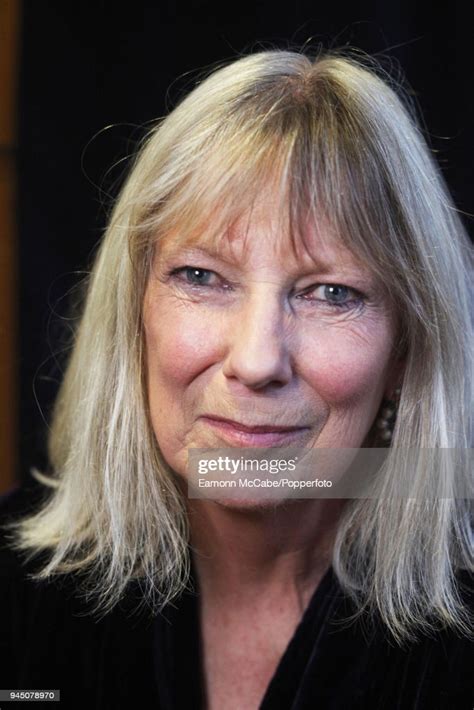Top 80 Nomadic Quotes & Sayings - Page 2
Explore popular Nomadic quotes.
Last updated on November 27, 2024.
Withdraw allegiance from the old categories of the Negative (law, limit, castration, lack, lacuna), which the Western thought has so long held sacred as a form of power and an access to reality. Prefer what is positive and multiple, difference over uniformity, flows over unities, mobile arrangements over systems. Believe that what is productive is not sedentary but nomadic.
Those of us raised in modern cities tend to notice horizontal and vertical lines more quickly than lines at other orientations. In contrast, people raised in nomadic tribes do a better job noticing lines skewed at intermediate angles, since Mother Nature tends to work with a wider array of lines than most architects.
This is not to say there are not Chicagoans. But I would suggest that they are a nomadic people, whose lost home exists only in their minds, and in the glowing crystal memory cells they all carry in the palms of their hands: a great idea of a second city, lit with life and love, reasonable drink prices at cool bars, and, of course, blocks and blocks of bright and devastating fire.
children are an embarrassment to a business civilization. A business society needs children for the same reason that a nomadic or a pastoral society needs them - to perpetuate itself. Unfortunately, however, children are of no use to a business society until they have almost reached physical maturity.
I believe that our distant nomadic ancestors came forward and survived because they could hear distant, faint birdsong as an acoustic navigational beacon, if you will, and by moving toward the birdsong, they were able to find places with shelter, food, and water, and a prosperous growing region. Indeed, birdsong is the number one indicator of habitats prosperous to humans.
I think there's a very fundamental urge to create a safe space, a home; most animals have that impulse, and humans certainly do - with some exceptions, like nomadic people who perhaps don't feel the need to settle in quite that way. But most of us do want to have space, somewhere we feel secure and where we repeatedly return. Somewhere we can sleep without fear. And there's nothing wrong with that desire. It's completely understandable. It only becomes ugly when that creation of a safe space involves making an enclosure from which other people are kept out.
Our consumer economy peddles the notions "romantic consumerism" of finding "the one," of being the one. It's the narcissistic enhancement of, "I'm the one you stopped your nomadic life for." It's one thing when you have sex for the first time when you marry, but it's another thing altogether when you stop having sex with others when you marry. So the marital commitment becomes, "I must be really special. With me, you no longer think you can find better next door." Romantic consumerism is thinking you can't find better, younger or newer.
I am now a mother and a grandmother, and I do not recall that I have ever ignored the claims of the nomadic button and the ceaseless call for sympathy, and the greatest demand on time and patience. My children and their children have been my closest thought, but from the first days of dawning individuality, I have longed unceasingly to make pictures of people... to make likenesses that are biographies, to bring out in each photograph the essential temperament that is called, soul, humanity.
When you have kids it's nice to have a place where they can always return to and some place where they will grow up in, but I never had that. I'm not attached to things and places. I like that we [the family] keep moving. It's a nomadic life, and I think that's a great life. I'm excited when we take our kids to a new country and they don't just immediately look for the comforts of home. They blend into that country. Send them to any place in the world and they won't be scared. They'll just feel like they can make friends there.
One good thing that comes from living the nomadic life demanded by an expedition is that one sheds the fake skin donned from living too closely among society. For those of us who live for the freedom of such a lifestyle, that skin is dry and itchy and ill fitting. From my observances, that skin is much like a callus caused by the pure irritation of being forced to spend so much time with one's fellow man. Thank God I am spared such nonsense.
Hospitality is always an act that benefits the host even more than the guest. The concept of hospitality arose in ancient times when the reciprocity was easier to see: in nomadic cultures, the food and shelter one gave to a stranger yesterday is the food and shelter one hopes to receive from a stranger tomorrow. By offering hospitality, one participates in the endless reweaving of a social fabric on which all can depend-thus the gift of sustenance for the guest becomes a gift of hope for the host.
Don't settle down and sit in one place. Move around, be nomadic, make each day a new horizon. You are still going to live a long timeand it would be a shame if you did not take the opportunity to revolutionize your life and move into an entirely new realm of experience.My point is that you do not need me or anyone elseThe only person you are fighting is yourself and your stubbornness
I think about museums often. There are things that I want museums to do that they often don't. For me, I like it when there's a system within the museum that can continuously change - whether it's a museum that is nomadic or one that's designed so the building can shape-shift. I like restless spaces, and I want to be engaged.
Our Republic is not a pastoral, not a military, not an agricultural, not a nomadic, not a clerical, but a business civilization. Nor is there anything random, casual or accidental about the United States as a business society. It is thoroughly well integrated - organized from top to bottom for the maximum efficiency of commerce and industry, for the maximum efficiency of making money.
My first audition I ended up getting the film was Margaret's Museum with Helena Bonham-Carter. And I went off for about two months on my own even to Scotland and hit Brittan and Nova Scotia and was surrounded by very creative people, nomadic people. And I just really loved the lifestyle and the zest for life and they kind of confused me ever since. So I've been chasing that dragon.
Brooke Berman's voice is utterly distinct, and her book, detailing her nomadic artist's journey toward both a successful playwriting career and a home of her own, through 20 years of cramped sublets, high-rise palaces, writer's colonies, and boyfriend's vans, is a hilarious, hopeful, and penetrating must-read.

















